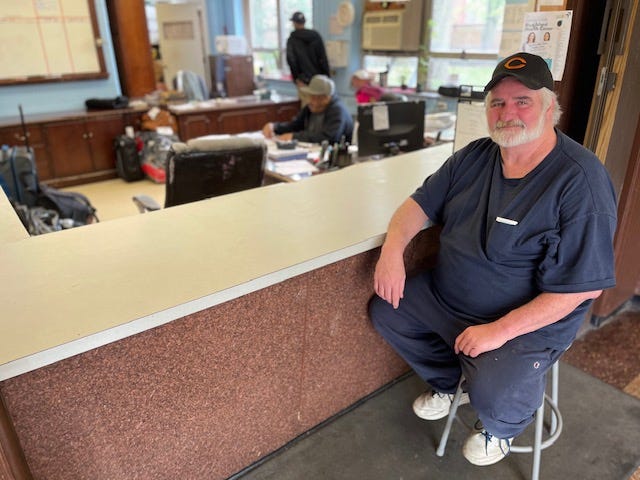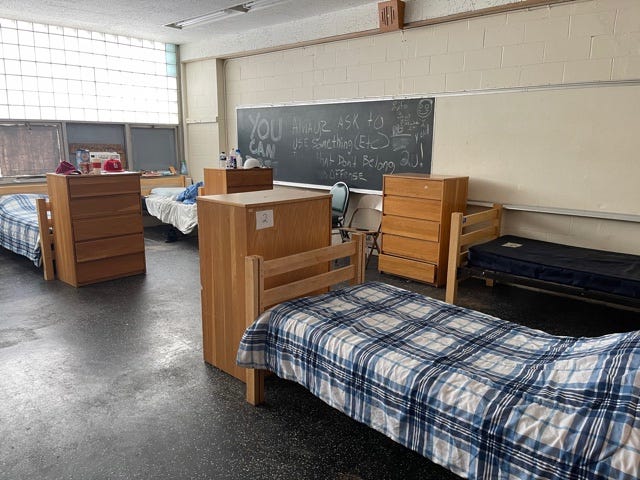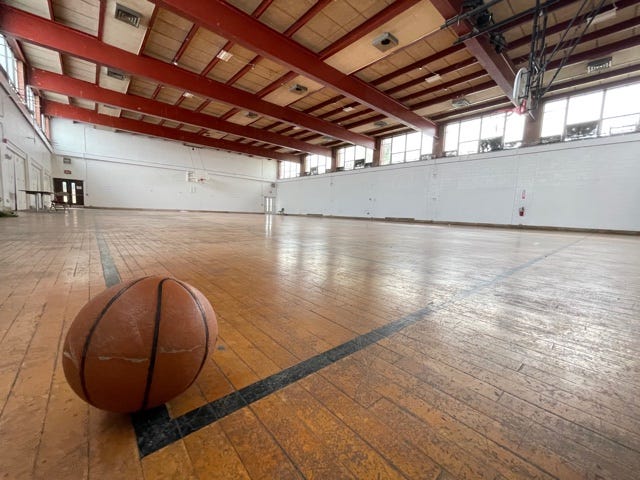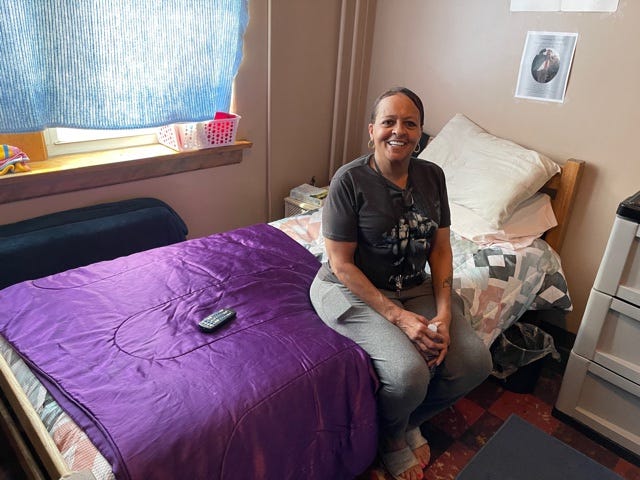
(WBBM NEWSRADIO) — John Dunleavy knows what it's like to be homeless and addicted to drugs.
"I've been in and out of the program 25 times," he recalled.
"I hung around with a group of guys who loved drugs. We started with marijuana, then we turned to hard drugs. The minute I'd get out of rehab, I'd start feeling good about myself, then I'd use again.”
It was in Alcoholics Anonymous that he realized he wanted to give back.
"When I jumped to Step 12, I wanted to help others. I knew that would be the only thing that kept me on the right path,” he said.
Finally clean in 2003, he opened his first recovery home in Palos Hills. Soon enough, he had seven facilities — and more people than beds.

"When we filled up the first home, we had no more beds left. We had to put them on the couch, and we needed to open up another one.”
In 2011, they moved into a former school in Blue Island, complete with a gym, a pool and a library.
"149,000 square feet here,” Dunleavy said. “It can house up to 300 people. This is a former Catholic girls school. Dozens of nuns used to live here, and they basically gave us the property because we were going to do something good with it."
Dunleavy says Affordable Recovery Housing offers shelter, recovery, community and life skills programs and, most importantly, opportunities and transportation to good jobs.
"If we provide a place that can do all that for them, even a job, they pay their own way. We are 100% self supporting at this campus,” he said.
Dunleavy also works with staffing agencies to secure employment for his residents. The facility owns two old school buses parked in the back that take residents to their jobs each day.
Much of the country could solve the homeless problem, he said, if cities and towns purchased vacant schools.

"All these vacant properties could be rehabbed and can house people who need it most. That's what we did. If you're on the street, call 1-800-HOMELESS and we'll come get you and bring you here. Any day, any time.
“When you see someone on the street, don't give them money. They'll only spend that on drugs. Instead, call us, we'll take them off the street and give them a roof over their head.”
"This room means the world to me,' said Gwendolyn Young, 63, who has struggled with drugs for 20 years.
"I was sick and tired of being sick and tired. Drugs destroyed my life. I lost my home, my job, my kids. I knew I needed to be somewhere for structure, I knew I needed help. Now I have a great job and a purpose. I feel great."

She's lived at the center for more than a year. She calls it her sanctuary, a place that has saved her life, kept her focused and most importantly, kept her sober. It'll be 10 years next month.
"June 13th, next month. Yes ma'am, clean and sober! I love it here," she said.
Dunleavy said Affordable Recovery Housing is a one-stop shop, and it's unique because it's addicts helping addicts.
"Between all of us combined, we have over 1,000 years of homelessness, drug addiction and recovery,” he said. "We are all homeless, and we all live on the property. We're counselors and friends and most importantly, we've lived it and survived.”
Over the years, he estimates some 15,000 people have come through the doors. His ultimate goal is to give every homeless person shelter and a second chance at life.
"Whatever made you homeless, we're going to help you get back on your feet,” he said.

